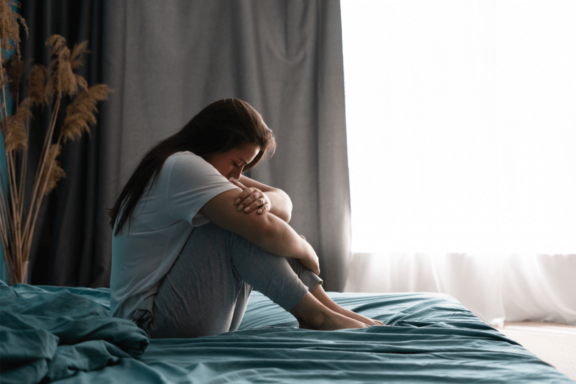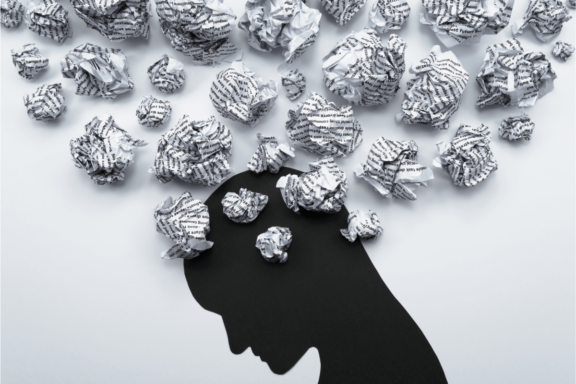
Approximately 35 million people globally suffer from substance use disorders, yet only one in seven receive the help they need.¹ Drug addiction is a behavioral condition that affects people from all backgrounds, impacting their relationships, careers, health, and all other aspects of their lives. If you or a loved one has a drug addiction, turning to drug rehabs in Connecticut can help you find sobriety.
Understanding Drug Addiction
Drug addiction is a chronic and relapsing disease that leads you to compulsively use drugs despite adverse consequences. Although using drugs for the first time is usually voluntary, subsequent use begins making changes in the brain that affect self-control, making it difficult to resist the urges to keep using the substance.
Drugs and alcohol affect the brain’s reward system. They cause euphoria and flood the brain with dopamine, a feel-good chemical. Because your brain sees the behavior of using drugs as one that offers a powerful reward, it starts craving the drug. The more drugs you use, however, the more the brain adapts to them by reducing how the reward system cells react to them, resulting in tolerance.
Anyone can develop a drug addiction, but some people have an increased risk of it. Those who have mental health conditions, have experienced any type of violence, have high levels of stress, or have close relatives who suffer from substance use disorders are much more likely to struggle with substance misuse, too.
Treating Drug Addiction in Connecticut
At our drug rehab in CT, we offer a variety of treatment programs to help you find your sobriety once more. We rely on evidence-based clinical modalities that include talk therapy and holistic therapies. Our day programs, outpatient care, and extended care options provide the chance to learn how to live without drugs on a schedule and timeline that works for you.
Day Treatment
Day treatment, also called partial hospitalization, consists of spending many hours of treatment at our center every day. You live at home while still getting the highest level of outpatient care available.
Our day treatment programs offer individual therapy as well as group therapy sessions to help you understand the cause of the addiction and what may be standing in your way of achieving recovery. If you have co-occurring mental health conditions, we focus on treating both conditions at the same time.
We also offer holistic treatments. At our drug rehab in CT, we know you are more than just your addiction, so we can help you rediscover yourself via options like art therapy, experiential therapy, and more.
Intensive Outpatient Program
A step down from day treatment is our intensive outpatient program (IOP), which allows you to gain more independence while still receiving a high level of care. At our IOP, you’re able to get many hours of treatment a day, three to five days a week. These hours include individual and group therapy time, family therapy, and much more.
Extended Care
Another treatment option we offer is extended care. Extended care is an outpatient option that allows you to stay home and keep up with your responsibilities. It is a treatment option as unique as you are, letting you get the exact level of care that you need. You receive a robust level of support with individual and group therapy, as well as family therapy and relapse prevention assistance.
What to Expect From Our Treatment Programs
When you turn to Connecticut Center for Recovery, you get a variety of therapy options to help you better understand the cause of the addiction. From cognitive-behavioral therapy to art therapy and more, we offer what you need to get back on the road to sobriety.
Individual Therapy
One of the most crucial aspects of drug addiction treatment is individual therapy. These sessions help you get to the root cause of your substance use disorder. We work with many types of therapy options in these sessions, including:
- Cognitive-behavioral therapy (CBT)
- Motivational enhancement theory
- Acceptance and commitment therapy (ACT)
- Dialectical behavior therapy (DBT)
- Eye movement desensitization and reprocessing (EMDR)
- Mindfulness-based therapy (MBCT)
- Rational emotive behavior therapy (REBT)
- Solution-focused brief therapy (SFBT)
- Trauma-focused therapy
We will work closely with you to find the most effective modalities for treating the addiction. If you have co-occurring mental health concerns, we will also focus on treating those.
Group Therapy
Addiction can be isolating. Feelings of isolation often increase mental distress, leading to more substance abuse. To help you understand that other people are struggling with addiction, we offer group therapy sessions.
During these sessions, you can hear about the experiences others have had as they work through their addiction issues. It provides the chance to start building a support system, which you can then depend on as you go through recovery.
Family Therapy
Substance abuse doesn’t just affect the person with the active addiction. Your family is likely struggling to deal with the problem and how to help you. By offering family therapy sessions, we can show you and your loved ones how to interact with one another in healthier ways. Rebuilding trust is an essential part of moving forward with your loved ones.
Holistic Therapy
To help you become a whole and healthy person again, we offer holistic therapy sessions like art therapy and experiential therapy. These sessions help you get in tune with yourself and your values again. Doing so can provide powerful motivation and insight that help you maintain sobriety in the long term.
Turn to Connecticut Center for Recovery for Drug Rehab in Connecticut
You don’t have to keep struggling to get sober on your own. There’s help available. Connecticut Center for Recovery offers reliable outpatient treatment programs that allow you to spend the night at home as you get the care you deserve. Contact Connecticut Center for Recovery today to learn more about our programs and how we can help.
Sources:
[1] https://www.unodc.org/unodc/en/frontpage/2019/June/world-drug-report-2019_-35-million-people-worldwide-suffer-from-drug-use-disorders-while-only-1-in-7-people-receive-treatment.html


